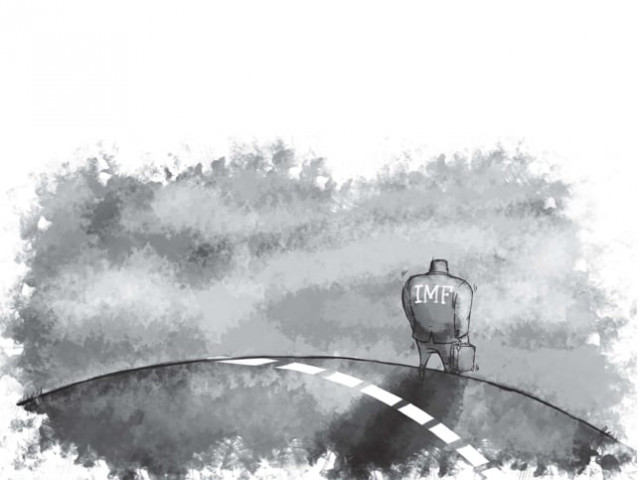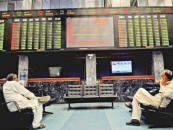Talks with IMF end inconclusively
Govt to announce power tariff increase today, other measures in the offing.

Talks between the International Monetary Fund (IMF) and Pakistan remained inconclusive as the Fund was skeptical about the government’s ability to take corrective measures to bring the economy back on track.
However, the economic team insists that during 11 days of talks the government has shown progress and the agreed measures will be announced in the next couple of days.
The IMF mission, led by the assistant director for Middle East and Central Asia, flew to Washington on Saturday morning with empty hands. IMF has suspended its $11.3 billion bailout programme since July last year due to the government’s inability to levy reformed general sales tax and control budget deficit.
During talks with IMF, the government could not get a letter of comfort, a note that acknowledges that the economy is on track which is required for winning budgetary support loans from other international lenders.
The Fund raised questions over the government’s ability to manage debt, called for further reducing borrowing from the State Bank and improving monitoring of banks in the wake of rising non-performing loans. “In order to lay the basis for a higher and broad-based economic growth, tax reforms, reduction of poorly-targeted subsidies and financial sector reforms are needed to improve governance and promote higher savings, investment and growth,” said IMF in a handout.The senior most finance ministry functionary said on Friday that though talks have been concluded, these would continue from Washington, as the government was ready to take agreed measures. He said the government would notify a two per cent increase in power tariffs on Saturday. “IMF’s programme targets will be met, but may not be completely,” said the official.
Another key government functionary, who had managed to get the mission stay extended for three days, said the government would announce revenue measures during the next couple of days.
According to IMF, Pakistan agreed to cut its budget deficit not only for this year, but also promised to apply ‘significant’ cuts in the next financial year. “Significant fiscal consolidation will be needed in 2011-12 in order to reduce inflation and ensure debt sustainability.” It said the lower budget deficit would also help cope with the impact of higher oil prices.
“The mission welcomed recent expenditure restraints and tax policy and enforcement measures being considered by the government to mobilise additional revenue. These measures, if implemented promptly and consistently, will help to improve the budgetary position,” IMF said. It said the government needed to protect pro-poor spending and flood assistance and reconstruction efforts while prioritising expenditures. It urged the federal government to strike an agreement with provinces on their budgetary positions to achieve the deficit target.
The federal government has asked the provinces to generate a surplus of at least Rs120 billion to restrict the budget deficit to 5.3 per cent of the total size of economy.
Sales tax exemption withdrawn
In a related development, the federal government on Friday levied 8.5 per cent sales tax on goods produced and manufactured in federally and provincially administrated tribal areas and sold in regions where sales tax is applicable. However, sales of these goods in Fata and Pata will remain exempted from tax. The Federal Board of Revenue has issued a notification in this regard that will be applicable from March. The notification will not be applicable to sales of cement, sugar, beverages and cigarettes. Mostly, cooking oil and ghee are produced in these areas and supplied to the settled areas of Khyber-Pakhtunkhwa and Punjab.
Published in The Express Tribune, March 12th, 2011.


















COMMENTS
Comments are moderated and generally will be posted if they are on-topic and not abusive.
For more information, please see our Comments FAQ